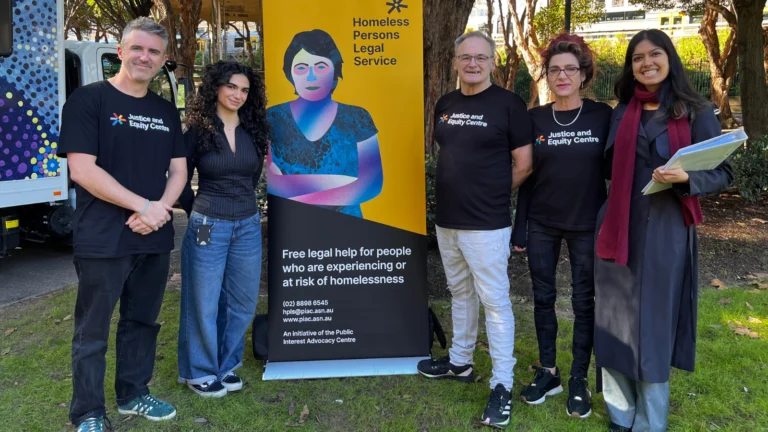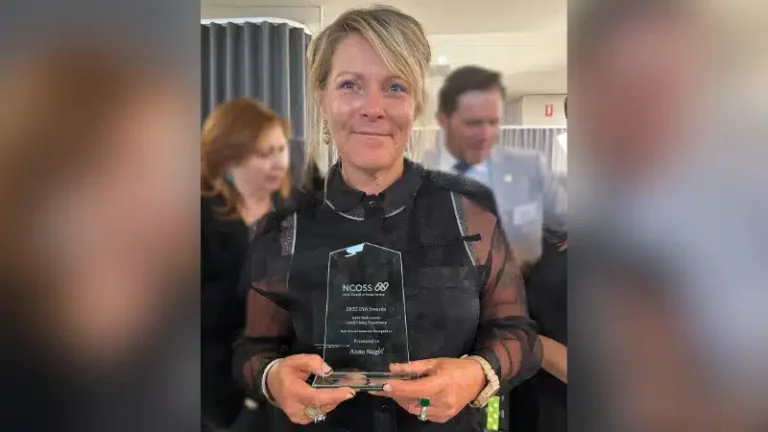- Asylum seeker and PIAC client Yasir* has settled a claim against the Commonwealth and security contractor Serco over his treatment in Australian immigration detention.
- PIAC alleged the requirement that Yasir wear handcuffs to attend essential medical appointments was unlawful and a form of disability discrimination.
- While the terms of the settlement are confidential, Yasir is pleased with the outcome and feels there has been some accountability for his mistreatment.
- PIAC is investigating a potential class action on behalf of others who may have been unlawfully handcuffed while in immigration detention.
The Public Interest Advocacy Centre (PIAC) has represented Yasir* in a protracted, 3-year battle against the Commonwealth and its security contractor, Serco, over his treatment in Australian immigration detention. The matter was recently settled on confidential terms.
‘I feel happy and sad now. Sad about the bad things that happened to me and how that made my health worse and still impacts my life but happy because I can tell my story and let people know about the bad things the Commonwealth and Serco do to people like me. I am really happy because I didn’t have a voice and when PIAC help me, people could hear my voice. I am happy with how things finished.’
‘It was really hard. What happened to me is a part of me. I am still hurting every day. When I would have to talk to my lawyers about these things for the case, I would feel awful for weeks and find it hard to sleep.’
When Yasir was a small child, he and his family were imprisoned in his country of birth where they were tortured and handcuffed by guards. He also witnessed the torture of others.
‘Since that time, anytime I see a handcuff or someone being handcuffed, I get a flashback, like a movie, I go back to the worst time in my life. I sometimes get shaky and I sometimes get a seizure.’
Although Yasir was diagnosed with severe post-traumatic stress disorder while in detention, Serco guards regularly refused to allow him to attend offsite medical appointments without handcuffs.
‘I missed many medical appointments because they said they wouldn’t take me unless I am handcuffed. But when they used them on me, I would have seizures, fall over and hit my head and feel bad for weeks. My body would shake, sometimes I would vomit and I would feel terrible. Even talking about or thinking about handcuffs makes me feel awful.’
‘Also, if other people see me in handcuffs, they give me bad looks and I hate it. It makes me think they feel like I am dangerous. I feel embarrassed and like I am not being treated like I am a human when they hold my arms and walk through the hospital.’
‘When I missed medical appointments, I felt very worried because doctors had been telling me that my medical problems are serious, like my heart and lung problems. When I missed appointments, I felt that maybe I am sick and no one can help me. This was very hard for me, not knowing. It caused me a lot of distress.’
When he sought asylum in Australia, Yasir was held in immigration detention centres for almost 9 years.
‘Where I come from, my family were put in prison just because of who we are. Only because of who we are, they said we are “enemies of the state”.’
In a landmark test case in the Federal Court, PIAC alleged that the actions of immigration detention staff unreasonably denied Yasir access to essential medical care while in detention and was accordingly a form of discrimination under the Disability Discrimination Act. PIAC also alleged that forcing Yasir to wear handcuffs to attend medical appointments was unlawful as there was no power under Australian law that allowed authorities to pre-emptively use restraints on people in immigration detention in those circumstances.
‘PIAC took on this case because we believed the way Yasir and others like him were being treated was unlawful and deeply harmful,’ said PIAC Principal Solicitor Jonathan Hall Spence.
‘Yasir was put in an impossible position, where he had to choose between the trauma of handcuffing or being denied essential medical care. His physical health and mental health both suffered as a result.’
‘We are pleased we have settled the case with an outcome Yasir is happy with.’
‘It should not have taken legal intervention by PIAC to end the on-going handcuffing and threats of handcuffing that caused Yasir repeated trauma while he was in immigration detention.’
‘The people Australia locks up in immigration detention are human beings. We have a duty to treat them with dignity and care.’
‘We urge the Albanese Government to reform the policies and practices that enable the excessive and unlawful use of restraints in immigration detention, that continue to harm other detainees like Yasir.’
PIAC is now investigating a class action challenging the use of handcuffs on others detained in Australian immigration detention like Yasir. PIAC encourages people who have been handcuffed while in immigration detention to find more information on our website at www.piac.asn.au/handcuffing.
*Name has been changed to protect our client’s identity.
PIAC thanks Michael Seck and Miles Foran of counsel and the pro bono team at Gilbert + Tobin, without whom this test case would not have been possible. PIAC would also like to thank Woodsford, John and Mary Walker and the Grata Fund for their financial support for Yasir. The Grata Fund supports people and communities to hold powerful government and corporate leaders to account and achieve systemic change through the courts. Grata provided funding to support Yasir throughout his legal journey.
PIAC would also like to acknowledge the Ross Trust, the Williams Trust and the law firm Johnson Winter & Slattery for their general support for PIAC’s Asylum Seeker Rights work.
Media contact:
PIAC Media and Communications Manager, Dan Buhagiar: 0478 739 280.

